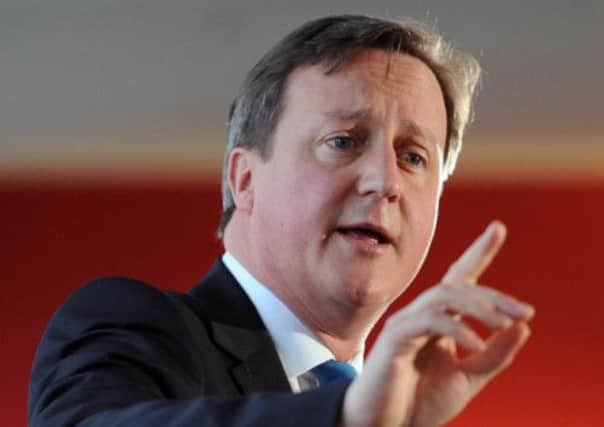Leaders: Tories’ war over Europe clouds deeper issues | We all have a duty of care


The issue of Europe has been a problem for the party for decades, arguably responsible for the downfall of four leaders (John Major, William Hague, Iain Duncan Smith and Michael Howard) and three general election defeats (1997, 2001 and 2005). David Cameron is only the latest Conservative leader for whom hearing the word “Europe” must produce an involuntary shudder.
The latest catalyst was the comment yesterday by former chancellor Lord Lawson, who said Britain should leave the European Union, asserting that economic gains “would substantially outweigh the costs”.
Advertisement
Hide AdAdvertisement
Hide AdThere was no shortage of Tories yesterday agreeing with Lord Lawson, apparently in the belief that a swift exit from the EU in the referendum promised by David Cameron if the Conservatives win the next UK general election will be a get-out-of-jail-free card in the party’s battle with its new-found foe, the UK Independence Party (Ukip).
One of the misunderstandings here is the apparent Tory belief that the rise of Ukip can be wholly accounted for by discontent over Europe, and that Nigel Farage’s rise can be simply countered by a swift change of tack on membership of the EU.
This is to both misunderstand and underestimate the Ukip phenomenon, which is as much a product of distaste for the relaxed attitude of many liberal and metropolitan Tories on issues of sexuality and race. Mr Cameron is engaged in a culture war, not just a war over Europe.
Wiser heads within the party point to the lessons of the past 20 years – in which a Tory move to the right on Europe alienated those centre-ground voters any party has to win if it seeks to govern. Do not, they say, repeat mistakes of the past. They point, too, to the overwhelming opinion of British industry, which sees the EU common market as essential.
Here in Scotland, the debate is certain to feed into the independence referendum campaign. But to whose benefit? Opinions differ. On the one hand, Yes campaigners say a Eurosceptic England wanting out of the EU would be a spur to the independence cause, because the more Europhile Scots would want independence in order to stay in. On the other hand, No campaigners counter with a simple question: Given that Scotland’s biggest export market is England, would not our priority be to operate in the same market as the rest of the UK, regardless of whether than was in or out of the EU?
All this is only going to become more pertinent to the independence debate. The referendum in the autumn of 2014 will take place against the background of the run-up to the spring 2015 UK general election, in which Europe will be one of the defining issues.
We all have a duty of care
Our report today on the case of the Inverness care home for the elderly, where a third of the residents were on the verge of malnutrition, makes shocking reading. While we treasure the older people in our own families, too often the care provided for the elderly as a group in institutional surroundings falls far below what we would expect in a civilised country.
That this case came to light is due in large part to the work of the Care Inspectorate. This body was set up in 2011 to draw together a range of different organisations which were charged with overseeing the quality of care in a range of settings, including homes for the elderly and supervised children.
Advertisement
Hide AdAdvertisement
Hide AdSince its inception it has developed into an organisation with a reputation for rigour. The work of its inspection teams acts as a spur to organisations – both private sector and public sector – to ensure the highest possible standards of care.
What is particularly impressive about the Care Inspectorate report into the Inverness case – the Fairfield Nursing Home – is the degree of thoroughness. Inspectors did not just look for problems, but also worked with the institution in question to improve its standards, to the extent of providing new menus for the residents that would help ensure all had the benefits of a healthy and nutritious diet.
As Ian McNamara, chairman of the Highlands Senior Citizens’ Network, points out, many residents in these and similar homes do not have the ability to stand up for themselves. It is up to the rest of society, through organisations such as the Care Inspectorate, to ensure the demands of a decent society are met.